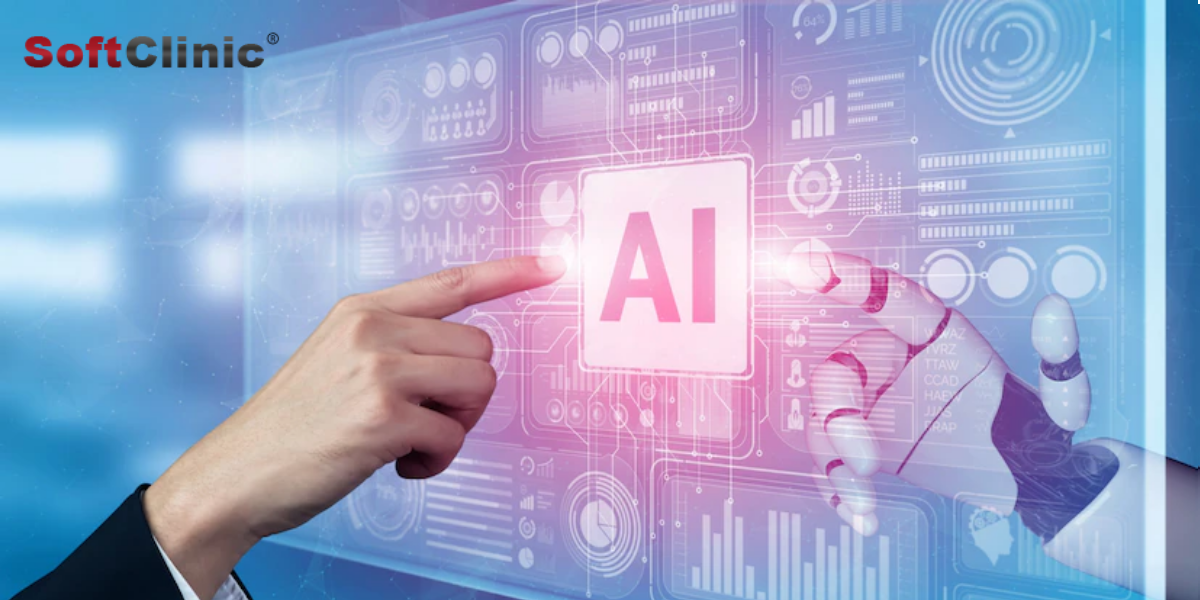6 Ways How AI Is Transforming the Healthcare Facilities for Better
June 23, 2022With recent advances, Artificial Intelligence is revolutionizing all industries, including healthcare. By integrating AI into systems, doctors can better diagnose diseases and provide excellent treatment.
Artificial Intelligence is getting better at what humans can do, and its application in healthcare is limitless. Below are six ways AI is helping healthcare facilities do more.
1. Early and Accurate Diagnosis of Diseases
AI tools can more accurately assess a patient’s historical and present data and provide new insights. This allows medical professionals to evaluate a patient’s condition and diagnose the disease accurately.
Moreover, AI-driven tools in healthcare can help detect the onset of potential health conditions that a patient may face in the future. Consequently, medical practitioners can assist patients in preparing for or even evading a disease by suggesting a practical course of action or treatment. Additionally, early detection allows for timely interventions, improving overall health outcomes. Furthermore, by utilizing these tools, healthcare providers can offer personalized care tailored to each patient’s needs.
2. Surgery Assistance
Artificial Intelligence can help surgeons perform comIntelligence with 100% accuracy. Machine learning allows AI to work with robotics, creating advanced AI surgical systems.
These systems help surgeons perform complex surgeries effectively, reducing associated risks such as side effects, infections, and blood loss. Moreover, patients recover faster after surgery because the procedure is performed with the tiniest movements. Furthermore, this precision enhances safety and improves overall surgical outcomes. Consequently, both patients and healthcare providers benefit from these advanced technologies.
3. Excellent Decision Making
In healthcare facilities, a faster diagnosis of a patient’s condition can be a lifesaver, and AI can achieve this. Specifically, implementing artificial intelligence in healthcare processes can enhance the intelligence and resources used for diagnosing patients. Furthermore, AI streamlines data analysis and helps identify patterns that may be overlooked. Consequently, healthcare professionals can make quicker and more accurate decisions. Additionally, this technology not only improves diagnostic efficiency but also contributes to better patient outcomes overall.
Machine learning algorithms can provide insights into a patient’s condition, helping doctors work faster and more efficiently. AI-integrated workflows can automate manual processes and eliminate diagnostic errors.
4. Healthcare For Everyone
As per WHO, improper or zero healthcare accessibility accounts for the 18.1-year gap in life expectancy recorded between the world’s wealthiest and poorest nations. One of the primary reasons for this is the lack of healthcare professionals and equipment.
This gap is being filled with AI-based digital infrastructure. This infrastructure allows local and international healthcare organizations to come together and provide necessary help to the patients, thus creating a working healthcare ecosystem. AI makes healthcare accessible to everyone on the planet.
5. Performance Optimization
Health systems are complexly interconnected systems and processes. This makes it difficult to increase productivity and save costs. However, healthcare systems can be optimized by integrating artificial intelligence.
You can transfer large volumes of data swiftly to gain insights into system optimization and improve services. It can speed up the processes and save time and money. One practical use of AI optimization can result in a low waiting time for patients.
6. Better Management
Like any other organization, the proper functioning of a healthcare clinic or hospital is highly dependent on management. With volumes of data to analyze, AI can fill loopholes, automate tasks, prevent care gaps, and improve the process.
In short, AI can help overcome existing challenges in managing the healthcare sector. For instance, one effective way to improve a healthcare organization’s functioning is to implement hospital management software like SoftClinic. Additionally, this software streamlines processes and enhances efficiency. As a result, healthcare providers can focus more on patient care and less on administrative tasks. Furthermore, by integrating AI and management software, organizations can adapt to changing needs and improve workflows. Ultimately, this combination leads to better healthcare outcomes and increased patient satisfaction.
Softclinic is a preferred hospital management software that helps digitalize healthcare facilities. The software offers quick and easy solutions with patient management, laboratory management, and e-prescribing. Below are some of the features of this software:
- Advance Data Analytics
- Secure Digital Reporting
- Integration with Bioinformatics Systems
- Digitized Equipment
- Interfacing Digital Appointment System
Conclusion
With an increasing volume of patient data and the challenges facing the healthcare industry, technology is growing needed to improve the healthcare ecosystem. Moreover, the application of artificial intelligence has been documented to enhance the quality and efficiency of healthcare systems while providing new insights. Furthermore, with the immense potential of AI, it can inevitably address healthcare challenges and revolutionize the sector. Consequently, integrating AI into healthcare practices will lead to better patient outcomes and more efficient operations.

